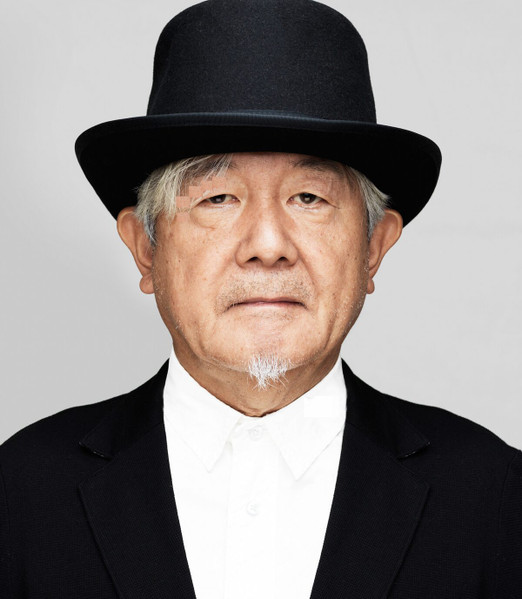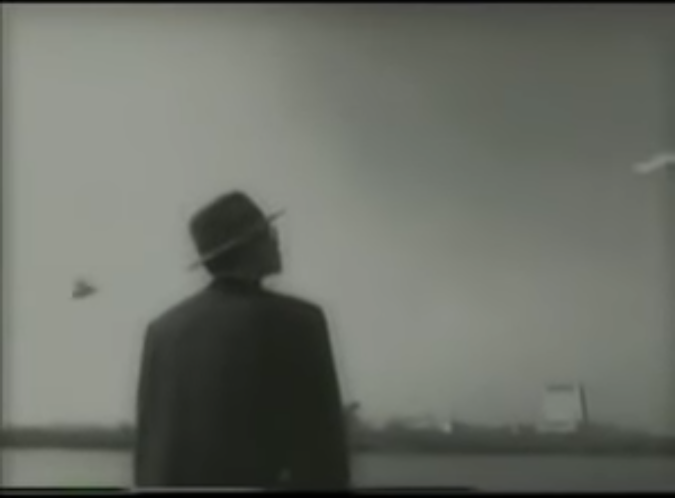Keiichi Suzuki
From Sound Stone of Origins, the MOTHER music encyclopedia

|
This article is a work in progress. This article is under construction. This is not meant to be shown to the public yet. |

Keiichi Suzuki (鈴木 慶一, Suzuki Keiichi, born August 28, 1951) is a Japanese musician and co-composer of the first two games in the MOTHER series. After releasing several albums as the frontman of the Moonriders and achieving national success, he was brought onto the production of EarthBound Beginnings, per creator Shigesato Itoi's request, in his first compositional role for a video game. He has also served as the producer for multiple MOTHER soundtrack releases, most notably the 1989 vocal album. Suzuki's approach to his work on the series pulls heavily from musical genres that gained prevalence in the 1960s and 1970s, such as baroque pop and art rock.
In recent years, Suzuki has scored multiple films such as Uzimaki (2000), Tokyo Godfathers (2003), and Kyrie (2023).
Early career

video, by The Moonriders.
Hachimitsu Pie
Keiichi Suzuki's music career began in the 70s. In 1973 he formed a rock band named Hachimitsu Pie meant to be a backing band for singer-songwriter Morito Agata. During the band's existence, they participated in some concerts. In 1973 they released their first album titled Sentimental-dōri. Later in 1974, the band separated.
The Moonriders
In 1975, Suzuki formed the rock band the Moonriders, alongside former Hachimitsu Pie members and his younger brother Hirobumi Suzuki. In 1976, the band released their debut album Hinotama Boy. They would release more than 20 albums. Between 1986 to 1991, the band would go into hiatus. By the end of 2011, the band went on another indefinite hiatus, and would later resume activity in 2020.
Side projects
In the mid-70s, Suzuki produced for multiple artists from a wide variety of genres, alongside commercial jingles.
In 1980, Shigesato Itoi released the New Wave album Penguinism, which was made with the assistance of Keiichi Suzuki and other Moonriders members. Akiko Yano also contributed to the album.
In 1981, he formed THE BEATNIKS alongside Yellow Magic Orchestra member Yukihiro Takahashi. They’ve released 5 albums, and they’ve also provided songs for other musicians.
Contributions to MOTHER
EarthBound Beginnings (1989)
During the Moonriders' temporary hiatus, Suzuki was recruited to co-compose Earthbound Beginnings (1989) by Shigesato Itoi, the game's principal creator. The other composer of Beginnings, Nintendo employee Hirokazu Tanaka, doubled as its sound designer and had already begun writing and programming several tracks before to Suzuki's recruitment. Despite his frequent enjoyment of playing Famicom games, Suzuki was unsure of the full extent of the console's audio capabilities and turned to Tanaka for clarification. Following his astonishment by the innovation of the existing compositions, he felt emboldened to fulfill his role.[1]
As requested by Itoi, one of Suzuki's main objectives during production was to create pop songs whose instrumental arrangements would be implemented into the game.[2] To contend with the heavily limited sound hardware of the Famicom, the co-composers resolved to find inspiration in music with a heavy emphasis on strong, simple melodies, such as the works of John Lennon and Randy Newman.[3] The austere instrumentation of John Lennon/Plastic Ono Band (1970) in particular served as a point of reference for Suzuki, who had immediately recalled the album upon hearing Itoi's plans for a game entitled MOTHER. Other influences included the Beach Boys' Smiley Smile and Van Dyke Parks's Song Cycle, both from 1967, which he drew from in order to reflect the game's American-inspired setting.[4]
Work on the soundtrack of EarthBound Beginnings took place at Suzuki's home, to to maintain confidentiality across five months. The workflow began with Suzuki recording demo tapes, incorporating his vocals and instruments such as pianos and guitars, for transposition onto a computer he had ordered. Typically three days per week, Tanaka commuted to the house from Kyoto and handled the programming and arrangement of Suzuki's compositions, as well as his own, onto the computer. Once digitized, the two composers' music regularly underwent adjustment and embellishment as suggested by each other during these visits. Suzuki found that his songs were weakened upon conversion into game music, necessitating correction.[1] through the duo's experimentation, they discovered techniques they had not heard elsewhere in the medium, including the fading repetition of a note across multiple sound channels to simulate delay.[1][2]
Another hurdle faced by the duo was the friction over the Famicom cartridge's storage capacity (dubbed "money") with the game's graphics team. Suzuki and Tanaka had initially written more complex tracks, but accommodations for the programmers needed to be made in accordance per Itoi's requests. One track that was at risk of being cut for memory space late into development was the theme for Yucca desert, despite Suzuki's wish for a change in music. In response to the programmers' reluctance to grant more of the storage capacity, the two musicians sent them a written request to ensure the track's inclusion.[1][2]
MOTHER (1989 Album)
The MOTHER album is a collection of 11 arrangements based on the in-game soundtrack, ressembling the music that inspired the original compositions. Interestingly enough, it includes English lyrics featuring singers such as Catherine Warwick and Jeremy Holland-Smith, among others. During the recording, Warwick was 14 years old, and Holland-Smith was 12.
EarthBound (1994)
Suzuki and Tanaka returned as the primary co-composers for EarthBound. As a result of the Super Famicom's improved dedicated sound chip, which featured eight sample-base audio channels with effects such as delay, the musicians were afforded significantly more freedom in artistic expression. The numerous tracks produced out of the duo's fervor quickly exceeded the eight megabits that could be stored on EarthBound's cartridge; its capacity was thus expanded to twelve and then twenty-four megabits. Suzuki found composing for the second MOTHER game much closer to his typical music approach and later claimed to have written over 100 tracks for it, including those that were cut from the final product.[5][6]
In contrast to the task of providing the previous game with a pop soundtrack, the composers shifted their aim in scoring EarthBound towards crafting robust instrumental compositions. Suzuki initially wanted to focus on incorporating elements of ambient and world music, but as the main composer for the game's town and field music, several other genres were requested of him to complement its diverse locales.[2] He was nonetheless able to include various personal touches. Two of his preexisting compositions became the bicycle music (his favorite track in the game), and Dalaam's theme, which was lifted from his 1991 album Suzuki White Report.[5] A clip of Suzuki saying "I miss you" was also inserted into the song from the end credits "Smiles and Tears".

MOTHER Music Revisited (2021)
MOTHER Music Revisited is an album based on the 1989 MOTHER arrangement album. It was announced during a live concert at Tokyo Billboard Live on November 28th, celebrating his 50th anniversary as a musician. It was released around the time the Hobonichi MOTHER project had begun. Released in vinyl and CD (and later in streaming sites such as Spotify), this version has a new set of arrangements of the MOTHER soundtrack, deviating in style from both the 1989 album and the in-game music. Instead of having a variety of singers, Suzuki provides vocals for the whole album. The in-game arrangements are also included in the deluxe version.
Works after MOTHER
Because of responsibilities at Creatures Inc. with the Pokémon anime, Hirokazu Tanaka was unavailable, and would not return to score MOTHER 3. Because of this, Suzuki also didn’t return. In their place, Shogo Sakai would become the primary composer.
Some songs such as Pollyanna, Humoresque of a Little Dog, and Snowman were arranged for MOTHER 3, alongside some other nods to Suzuki. Many songs were later rearranged for the Super Smash Bros series of games.
In 1995, Suzuki composed the Sega Saturn audio game Real Sound: Kaze no Regrett, with pop musician Akiko Yano as the composer of the ending theme, and other musicians such as former XTC guitarist David Gregory. The game was designed with the visually disabled in mind, after game designer Kenji Eno spent time with blind players. The soundtrack was recorded at Abbey Road Studios in London.
Keiichi Suzuki composed multiple soundtracks for movies and TV. In the 2003 Japan Academy Awards, he won Best Music for his score from Zatoichi (2003).
Trivia
The melody of The Traveler Can Hear the Song from EarthBound (used in Dalaam) is taken from Words, Colors, Noise, and Booms (from White Report) by Keiichi Suzuki at timestamp 2:44.
External pages
- Keiichi Suzuki's website: keiichisuzuki.com
- The Moonriders' official website: moonriders.net/
References
- Ape (October 20, 1989). Encyclopedia MOTHER. Shogakukan. pp. 136–139. ISBN 4-09-104114-0.
- "Keiichi Suzuki - 1997 Composer Interview". shmuplations.com.
- Bone, Amelia; Butler, Evan (Directors) (October 19, 2019). Mother to Earth: The Untold Story Of Earth Bound (Film). 54&O Productions.
- "The music for MOTHER was a real monster". artcorekirbies.fr.
- "Interview with Keiichi Suzuki". Weekly Famitsu. Enterbrain, Inc.: 12. October 28, 1994.
- "Weekly Famitsu – September 2, 1994". Yomuka!
